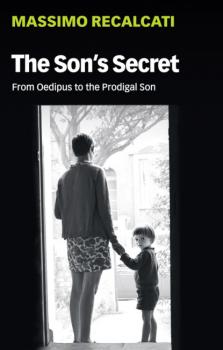ТОП просматриваемых книг сайта:















Massimo Recalcati
Список книг автора Massimo RecalcatiАннотация
Modern social and political life is characterized not only by a passion for freedom and a desire for human contact, but also by the urge to shut down, to refuse freedom and the responsibility that goes with it, to barter it away in return for our security: this is the temptation of the wall, a temptation with which every modern society has to come to terms. Drawing on his experience as a psychoanalyst, Recalcati shows that the temptation of the wall is rooted in a deep psychological inclination: human beings have always drawn up borders and rejected the risks associated with being open to the outside world. But when these borders are turned into walls, they can only result in an impoverishment of the value of exchange and the loss of the dynamic plurality of a life shared with others.
Аннотация
En el tiempo de la evaporación del padre y del desmembramiento de la familia tradicional, ¿qué es lo que puede tener una función de guía para el sujeto? ¿Qué queda del padre más allá de su Ideal? ¿Qué es lo que hace posible, en la época del ocaso del Edipo, una transmisión eficaz del deseo? ¿Qué significa «heredar» la facultad de desear? ¿Cómo pueden aún armonizarse el deseo y la Ley?A través de Sigmund Freud y Jacques Lacan, y de algunas figuras tomadas de la literatura ( Philip Roth y Cormac McCarthy) y del cine ( Clint Eastwood), se perfilan los rasgos de una paternidad debilitada, pero igualmente vital, exenta de cualquier aura teológica y fundada en el valor ético del testimonio singular. «Todo discurso sobre la crisis de la función paterna parece absolutamente caduco y, a la vez, absolutamente urgente. No solo porque uno no se resigna fácilmente al duelo por el Padre, sino, sobre todo, porque la humanización de la vida exige el encuentro con „al menos un padre“». Massimo Recalcati
Информация о книге
Автор произведения Massimo Recalcati
Жанр Документальная литература
Серия Mirar con las palabras
Аннотация
The kiss is the image that, perhaps more than any other, encompasses the beauty and poetry of love. Every love is required to maintain the kiss, to make it last. When they kiss, lovers carve out their hiding holes, finding their peace from war. When they kiss, the noise of the world is silenced, its laws broken, time is stolen from its normal continuity. They fall together in their distinct, embraced tongues. The kiss joins the tongue that declares love with the body of the lover. And the extinction of the kiss and, most importantly, of the desire to kiss one’s beloved announces the demise of love. In this short book, Massimo Recalcati – one of Italy’s leading intellectuals and bestselling authors – offers seven brief lessons on the mystery and miracle of love, from the serendipity of the first encounter to its end or its continuation over time, as mysterious and miraculous as the first encounter itself.
Аннотация
Relationships fall apart, marriages fail, couples break up – it happens to us all. Time corrodes passion and the routines of daily life kill the excitement that surrounds the emotion of the first encounter. The difficulty of uniting sexual pleasure with love, which Freud considered to be the most common neurosis in any love life, has become emblematic of a truth that seems undeniable: desire is destined to die if its object is not constantly renewed, if we do not change partner, if it is closed for too long in the restrictive chamber of the same bond. <br /><br />And yet what happens to these bonds when one of the two partners betrays the other, when the promise fails, when there is another emotional experience cloaked in secrecy and deceit? What happens if the traitor then begs forgiveness? Are they asking to be loved again and, having declared that it is not like it used to be, now want everything to go back to how it was? Should we make fun of lovers in their attempts to make love last? Or should we try to face up to the experience of betrayal, with the offence caused by the person we love most? Should we not perhaps attempt to praise forgiveness in love?
Аннотация
This new book by Massimo Recalcati focuses on the psycho-social life of the son. Comparing and contrasting the tragic story of Oedipus by Sophocles and the parable of the prodigal son, Recalcati argues that all common parenting strategies, whether authoritarian or democratic, are attempts at sealing the fate of sons – that is, they are designed to ensure that sons realize the dreams and fantasies of the parents. But all that sons want – and this is their secret because they generally do not want, or are unable, to confront their parents directly – is to be recognized as unique, as different, as independent, free-thinking individuals who are able to chart their own path in life, rather than extensions of their parents' fantasies. The parents' task is to acknowledge this, and to create the space for this desire to flourish. Continuing his remarkable reflections on parents, children and family life, this new book by one of Italy's leading and bestselling public intellectuals will be of interest to a wide general readership.





